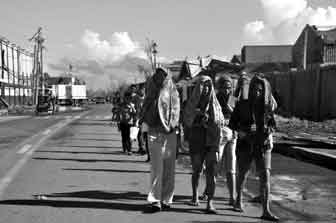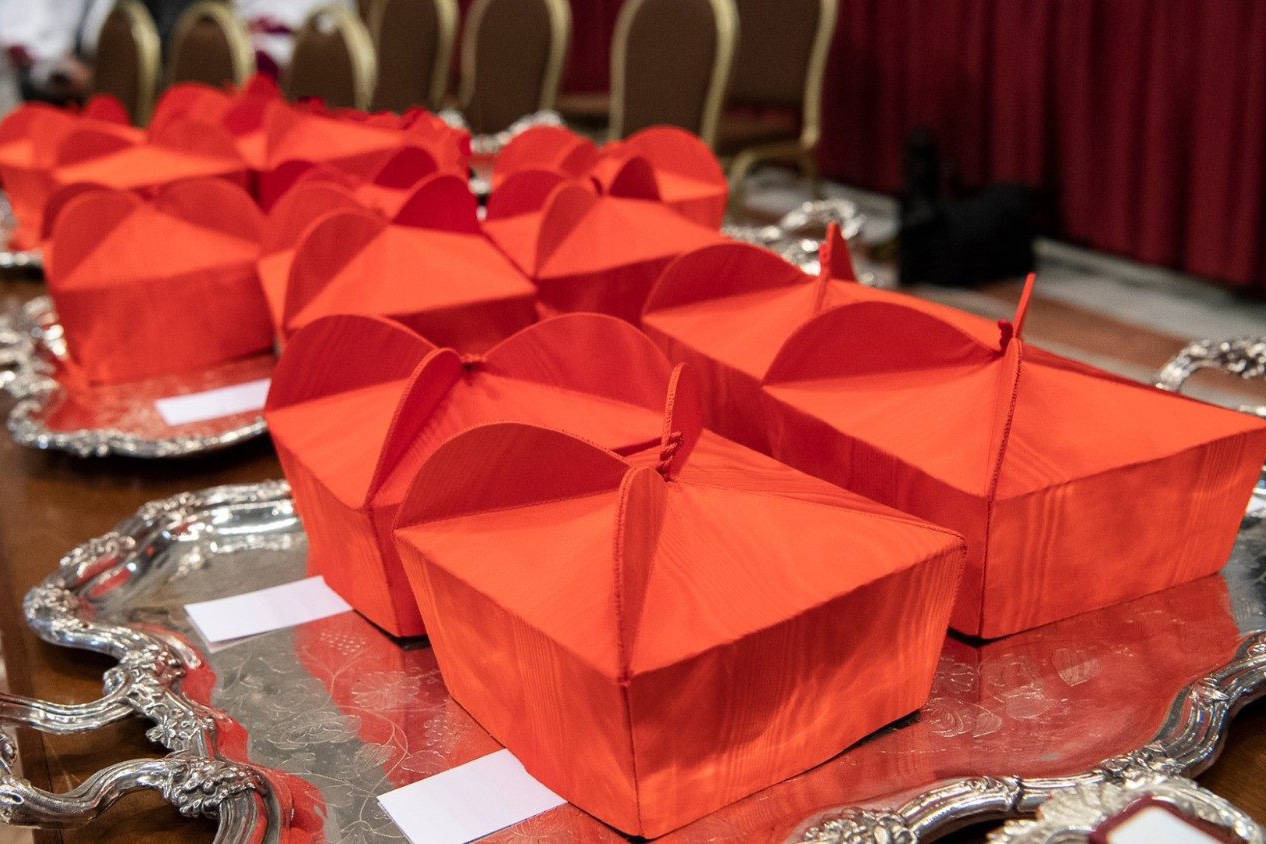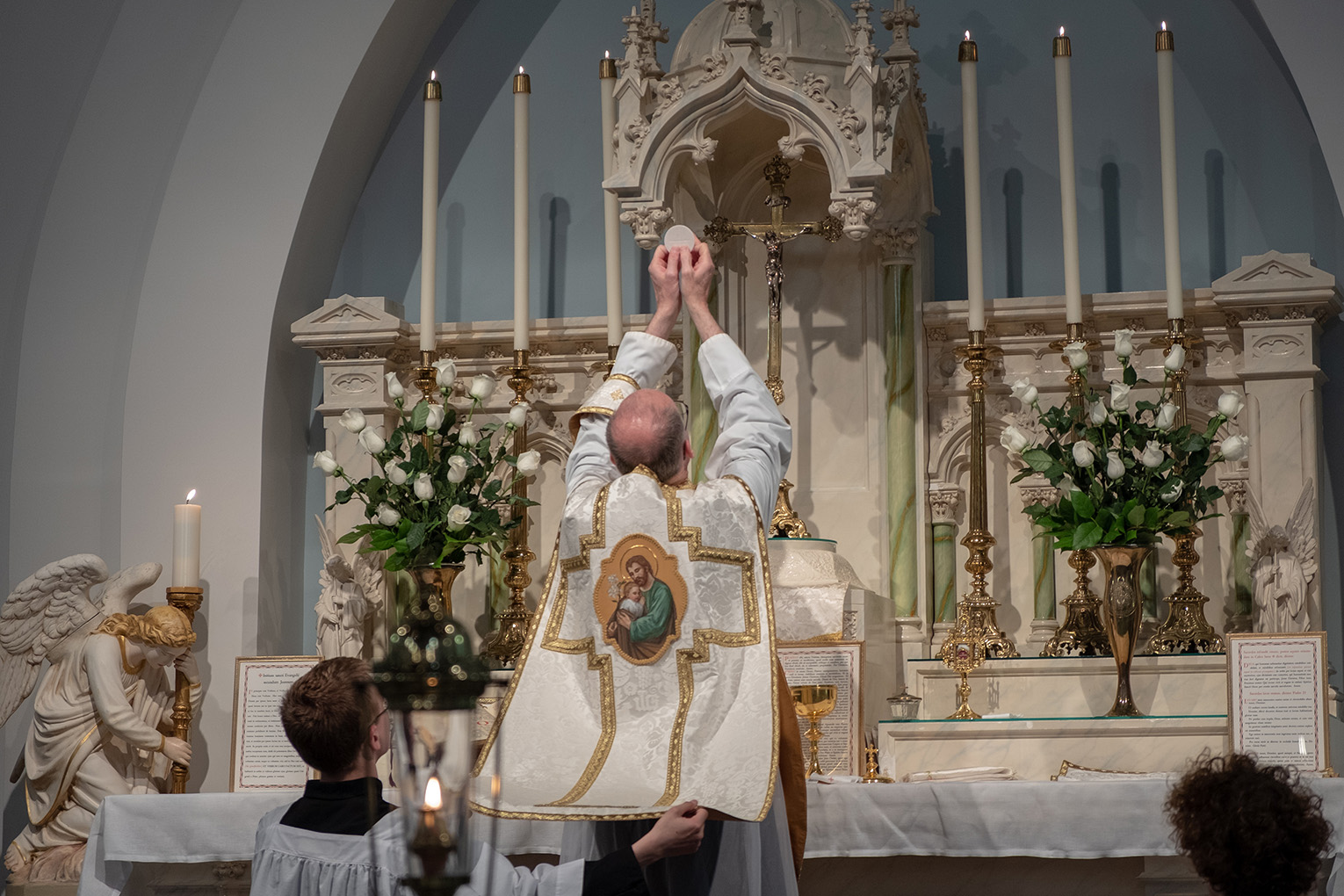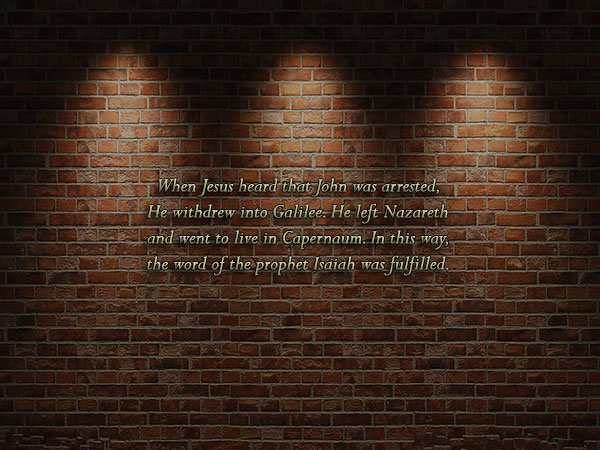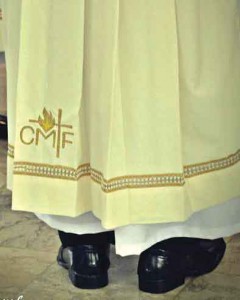 “Traggi un suono di crudo lamento (draw a lament of raw sound); O t’ispiri il Signore un concento che ne infonda al patire virtù! (or else let the Lord give us the strength to bear our sufferings!) (Act 111, Va, Pensiero. From the lyrics of Nabucco by Temistocle Solera)
“Traggi un suono di crudo lamento (draw a lament of raw sound); O t’ispiri il Signore un concento che ne infonda al patire virtù! (or else let the Lord give us the strength to bear our sufferings!) (Act 111, Va, Pensiero. From the lyrics of Nabucco by Temistocle Solera)
For many of us winter means many things. It is a time of icy days and nights. It is also a period of freezing rain and cold wind. Winter is that time of the year when days are shorter and nights are longer. Winter means darkness. Winter for many speaks of death and is a sign of barrenness when leaves fall to the ground and begin to rot. It is the time when trees are bare, grasses are dried and the soil is icy mud. The cold wind forces many to stay in the house where the fireplace keeps them warm, to be in a cozy home, to avoid icy streets as a precaution against slipping. Indeed, for almost all of us, winter is not a welcome season.
Winter means differently for many people. Everyone has to wear thicker clothing and necessary gears to protect themselves against the cold weather. Everyone has to be medically well prepared not to catch cold and other influenza viruses. Truly, December and winter are emotionally depressing and physically draining the energy.
Greek mythology narrates how winter started. The god of the Underworld, Hades, kidnapped Persephone to be his wife. Zeus obliged Hades to return her to Demeter, the goddess of the Earth and her mother. Before following Zeus’ order, Hades tricked Persephone into eating the food of the dead, the pomegranate seed. So, Rhea, the mother of Zeus and Demeter suggested that Persephone spend six months (or three to four months) as queen of the Underworld and the rest of the year with Demeter. But when the time came for Persephone to return to the Underworld, the earth became colder in autumn and winter until her reemergence months later in spring and summer. During the time Demeter is with Hades, she becomes depressed and causes winter. The Romans linked depression with Saturn, the Roman god of darkness. To be melancholic means to be “in Saturn” and a person psychologically diagnosed with melancholy is known as a “child of Saturn.” (Truthfully, Seasonal Affective Disorder [SAD] during the winter months is caused by the lack of ample sunlight and overproduction of melatonin. Both effects result into depression, melancholy and sleepiness. Humans have the lowest levels of serotonin during winter. The serotonin low levels generate sadness, depression and, in extreme cases, suicidal tendency. Low levels of serotonin, a building block of melatonin, bring about insomnia through non-production or overproduction of melatonin. Thus, the combination of low levels serotonin and increased amounts of melatonin precipitates SAD.)
Winter is not a welcome season either to our ancestors in faith. Depending on the height, it is colder on the hills and mountains of Israel. It is the time of cold season. (Jeremiah 36:22; Amos 3:15). In ancient times, the Hebrews did not have in-house heating system. To keep warm, everyone had to cover the head and neck with thick clothing and as much as possible stay away from the cold weather.
Work was not done in the fields. “The sluggard will not plow by reason of the winter.” (Proverbs 20:4). Paul asks Timothy to “come before winter” (2 Timothy 4:21) as sailing was impossible on frozen water. The cold is greatly dreaded because it causes much suffering: “Who can stand before his cold?” (Psalms 147:17). The last degree of degradation is to have “no covering in the cold” (Job 24:7). Jesus warned his followers to be watchful and pray in preparation for the end-time. “Pray that your flight be not in the winter.” (Matthew 24:20) It is an admonition in order that nobody should not be turned away from home, forced to live in caverns and travel when the roads are in worse condition and the days are shortest and the nights are longest. Journeying under such conditions is hazardous.
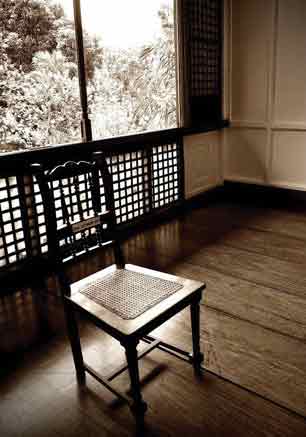 The ominous cold winter is also the favorite themes of visionaries and mystics. The idea of a bitterly cold winter night to come before the so-called Three Days of Darkness at the end-time, though not endorsed by the Holy See, is an important component in the teachings of mystics, such as Saints Hildegard of Bingen, Gaspar del Bufalo, Padre Pio, Anna Maria Taigi, Elizabeth Canori-Mora, Elena Aiello, Mariam Baouardi (Mary of Jesus Crucified), Rosa-Colomba Asdente, Palma d’Oria, Pere Lamy, Marie Martel, and Marie Julie Jahenny.
The ominous cold winter is also the favorite themes of visionaries and mystics. The idea of a bitterly cold winter night to come before the so-called Three Days of Darkness at the end-time, though not endorsed by the Holy See, is an important component in the teachings of mystics, such as Saints Hildegard of Bingen, Gaspar del Bufalo, Padre Pio, Anna Maria Taigi, Elizabeth Canori-Mora, Elena Aiello, Mariam Baouardi (Mary of Jesus Crucified), Rosa-Colomba Asdente, Palma d’Oria, Pere Lamy, Marie Martel, and Marie Julie Jahenny.
Life is full of surprises and wintry disruptions “Life is what happens to you while you’re planning it,” wrote Etty Hillesum. Five years ago, my life was drastically interrupted too. The first major wintry disruption or my “dark nights” happened when I underwent a quintuple bypass in 2008. On the eve of my 70th birthday in 2009, I fell at work and suffered a subdural hematoma that rendered my legs and fingers partially paralyzed. Then on July of the same year, I was diagnosed with multiple myeloma. Adding insult to injury, the US real estate market experienced a nationwide slump. I had to short sale my condominium that I was relying on to help me in my retirement. Man proposes, but God disposes. My active physical activities and financial plans were derailed. Today, I am still reeling from the brunt and aftershock of those serious interruptions or wintry disruptions in my life.
After 47 years of service to the Lord and the church, when I look back at my “then” and contrasted it with my “now,” I know I have arrived at the “winter” of my life. Physically, I am no longer that energetic priest I used to be. During my younger priestly years in the Philippines, I traveled miles to get to my appointments, deliver talks and rollos at different Cursillo houses, say three or four Masses on Sundays at different barrio chapels and, on various occasions, conduct recollections and retreats for different schools, civic and religious organizations. As far as priestly ministry is concerned, it seems that now I am merely contented with doing the few stressful and challenging priestly tasks, especially after having retired in 2011 at age 72. At times this negative feeling gets to me. I feel frustrated for not accomplishing many things I wanted and used to do. The impatience and disappointment eat up little by little my health and wellbeing. I become moody, grumpy and irritable. I feel as the miners of old who horribly disliked Paracelsus who accompanied Arsenic, because it terribly impaired their health. I have had nothing but utter abhorrence of the wintry disruptions in my life.
Henri Nouwen said, “I used to resent all the interruptions in my work until I realized that interruptions were my real work.” Rolheiser wrote,
“There is something in a planned life that needs to be, for
one’s own good, perennially sabotaged by interruptions. I am
less glib in quoting them now, given that my own life has just
been derailed by a major interruption.”
The recent news reports, good or bad, about the Vatican are disruptions to Catholics’ routine life. Interruption is part of life. The scandals that supposedly mire the high echelon of the Catholic Church that reverberate throughout the world are wintry disruptions to every believer. Disruptions planned or not constantly occur.
Karl Rahner once wrote that “in the torment of the insufficiency of everything attainable we begin to realize that here, in this life, all symphonies remain unfinished.”
No matter how hard we try to live the best way we can, at all times the music gets interrupted. To deny this is to make life miserable. We wallow in anger with self and others; we lose faith, and blame God for everything. To accept this reality is to mature in spite of the wintry pain, suffering, scandals and disruptions.
Heuristic faith as defined by Henri Nouwen is clinging to what a person believes, even when everything is against it. In his The Road to Daybreak A Spiritual Journey, he wrote,
“So I am praying while not knowing how to pray. I am resting while feeling restless; at peace while I am tempted, safe while still anxious; surrounded by a cloud of light while still in darkness, in love while still doubting.”
The saints’ holy lives were not all rosy. Their lives were interrupted by wintry disruptions. In her letters written during the 1950s and 1960s to Fr. Van Exem, Archbishop Périer, and to later spiritual directors, Fr. L. T. Picachy, S.J., and Fr. J. Neuner, S.J., Mother Teresa of Calcutta revealed her innermost feelings of doubt, loneliness, and abandonment. God seemed non-existent, heaven felt empty, and above all, her own suffering for the poorest of the poor seemed to be worthless, “… just that terrible pain of loss, of God not wanting me, of God not being God, of God not really existing.” Yet in the middle of her dark nights she turned her feeling of abandonment by God into an act of abandonment to God.
Even her namesake, St. Therese of Lisieux, who had her wintry “dark nights, confessed, “Do not believe I am swimming in consolations; oh, no, my consolation is to have none on earth.” She felt being in a dark tunnel and heard the darkness mocking her:
“You are dreaming about the light, about a fatherland embalmed in the sweetest perfumes; you are dreaming about the eternal possession of the Creator of all these marvels; you believe that one day you will walk out of this fog which surrounds you! Advance, advance; rejoice in death which will give you not what you hope for but a night still more profound, the night of nothingness.”
In spite of the winter-like coldness of her “dark nights,” she died with a complete trust and ardent love of God.
Mystics who had experienced the darkness of spiritual aridity at some time in their lives were overshadowed by a cloud of unknowing. Throughout Christian theology and mysticism, accounts of wintry darkness abound. It is an ancient belief, known as apophatic or negative theology that defines God in what he is not. St. Francis de Sales wrote,
“If I may not love Thee in the other world, for in Hell, none praise Thee, let me at least, every instance of my brief existence here, love Thee as much as I can.”14
In spite of the spiritual darkness every saint had experienced, a special grace enabled them to transform the “cloud of unknowing” to the “cloud of loving”. St. John of the Cross said,
“Oh, night more lovely than the dawn, Oh, night that joined Beloved with lover, Lover transformed in the Beloved!” 15
Even Ludwig Van Beethoven had his wintry dark nights. His life is a classic example of triumph over tragedy and from tragedy. Being subject to physical, mental and emotional impairments, such as deafness (tinnusitis), blindness and muteness, Beethoven contemplated suicide, but he did not go through with it; rather he transformed his turmoil to giftedness. During his dark nights, he composed the Fifth Symphony (in C minor), equally as great as Handel’s Messiah, and the Ninth Symphony (in D minor) with its Ode to Joy. 16
But winter is not all that negative and foreboding. Winter is also a time to rejoice, to revitalize our energy, and to rekindle our hope. Warmth is present in the coldness of winter. Winter has light as well as darkness. Winter is a welcome season too. Amidst the wintry condition of the Hebrews and their seemingly “cold” depressing situation, Zephaniah rekindled their hope by proclaiming that the Lord was coming to set them free (Zephaniah 3: 14-18). Paul’s prison environment was wintry, cold and depressing, but his words to the Philippians were filled with joyful expectation for the Lord (Philippians 4: 4-7).
Martin Luther King, Jr. had his dark nights that reached a high point. He almost gave up his fight for freedom, civil rights, racism, discrimination and prejudice. He remembered what occurred that night when everything seemed hopeless:
“One night toward the end of January, I settled into bed late,
after a strenuous day. Coretta had already fallen asleep and
just as I was about to doze off the telephone rang. An angry
voice said, `Listen, nigger, we’ve taken all we want from
you, before next week you’ll be sorry you ever came
to Montgomery.’ I hung up, but I couldn’t sleep. It seemed
that all of my fears had come down on me at once had reached the
saturation point.
I got out of bed and began to walk the floor. Finally I went
to the kitchen and heated a pot of coffee. I was ready to give
up. With my cup of coffee sitting untouched before me I tried
to think of a way to move out of the picture without appearing
a coward. In this state of exhaustion, when my courage had all
but gone, I decided to take my problem to God. With my head
in my hands, I bowed over the kitchen table and prayed aloud.
The words I spoke to God that midnight are still vivid in
my memory:
‘I am here taking a stand for what I believe is right. But now
I am afraid. The people are looking to me for leadership,
and if I stand before them without strength and courage, they too
will falter. I am at the end of my powers. I have nothing left.
I’ve come to the point where I can’t face it alone.’
At that moment I experienced the presence of the Divine as I
had never experienced Him before.” 17
Benigno ‘Ninoy’ Aquino faced also his dark moments while imprisoned during the martial years. Because of Francisco ‘Soc’ Rodrigo, Ninoy found God during his moments of “many disappointments, endless dark nights, long days of sad lament, of grave doubts, frustrations, bitter desolations of privations, untold indignities, humiliations.”
“You helped me find my Savior Christ through the fog of doubt and the thick clouds of human arrogance. Now that I have found him, I have achieved my inner peace. I cannot wait to finally discover-if the Lord had been so good to those who seek-what shall His goodness be to those who discovered Him?” 18
After she reflected on the barrenness, darkness and coldness of winter, Barbara Hobbs came up with this prayer:
“Dear God of all Seasons, you have gifted me with my weakness, emptiness-with winter moments, days, months in my life. I am so blind! I missed the lesson of the bare tree. I need to be stripped so that your Spirit can work within. I saw only weakness, only barrenness, only loss. I failed to see the strength in those uplifted branches, in that tiny seed. I failed to see your love in those around me, those who bear their winters patiently, and those whose lives touch mine and who offer a glimpse of You. Forgive me, Lord. Amen.” 19
The negative elements of my “wintry life” become the fertile ground for God to animate me again with his Spirit as he did 47 years ago. If life begins at 40, then this “winter” of my priestly life is a new beginning. In spite of the years gone by, as the fallen leaves of winter, I know fully well that a renewed life shall happen. Winter has an unseen light under its shadow of darkness. Yes, the “winter” of one’s life, especially that of a priest, is frightening and depressing. But the promise of a new spirit in ministry calls me again; a hope for a renewed life awaits me even with my fading physical agility. Today, I have more time to get in touch with relatives and friends, especially those I had neglected and taken for granted. I reminisce with delight the blessings of the good old days and the struggles to remain holy. Winter is a season of re-creation, renewal and a promise of warmer days ahead and of more blessings.
Leonard Bernstein wrote the famous Broadway play, Mass, in memory of President John F. Kennedy. Toward the end of the musical, a priest, dressed in elaborate and colorful vestments, is lifted on the shoulders of the people, in the form of a human pyramid. The crowd adores him while he holds the glass chalice. Suddenly the human pyramid collapses, and the priest falls all the way down to the ground. His clothing is torn apart, and the glass chalice falls on the ground as well. This time, he was wearing only a t-shirt and blue jeans as he walks away from the crowd. A group of children started singing, “Praise, praise, praise” (Laude, laude, laude). The priest looks at the broken chalice. There is a silence. He looks for a long moment and then comments: “I never realized that broken glass could shine so brightly!”
When we allow God to transform our dark, cold and depressing “winter” to become his means of coming to our world, our “wintry life” is God’s new Incarnation, a way for him to be born again and again in our hearts! With God’s grace “the broken glass,” “the dark nights” of our wintry life shall shine brightly again and again.
Our Lord, Jesus Christ, had also his “dark nights”. At Gethsemane, He said, “My soul is crushed with grief to the point of death.” (Matthew 26:38). Later on, his “dark nights” heightened at the crucifixion. He doubted if his God had forsaken him in the middle of his excruciating pain, when he needed Him most, because his closest friends deserted and left him alone in the “wintry dark and cold.” Dying with a heavy heart, he uttered, “My God, my God, why have you abandoned me?” (Mark 15:34). Christ’s “dark nights” culminated when he died. To commiserate with Christ’s darkest hours, the whole earth was shrouded in darkness from noon until three in the afternoon. (Matthew 27:45, 27:51-54 Mark 15:33 Luke 23:44-45) Finally, he died in absolute love for his Father, for he said, “Into your hands I commend my spirit.” (Luke 23:46)
Life contains a paradox that lies at the center of the life and message of Jesus. We also continue believing, but still doubting, because we know that life comes after death, brightness succeeds life’s wintry depressing darkness and Easter follows after Good Friday.
Msgr. Fernando G. Gutierrez, PC, MRE, D.Min., belongs to the Diocese of Malolos, Bulacan, Philippines. He is a retired Federal Prison Supervisory Chaplain and lives in San Diego, CA. He is the author of five books and holds a California Community College Credential in Philosophy and Religion. He is a weekly contributing columnist for The Asian Journal of San Diego, California.



